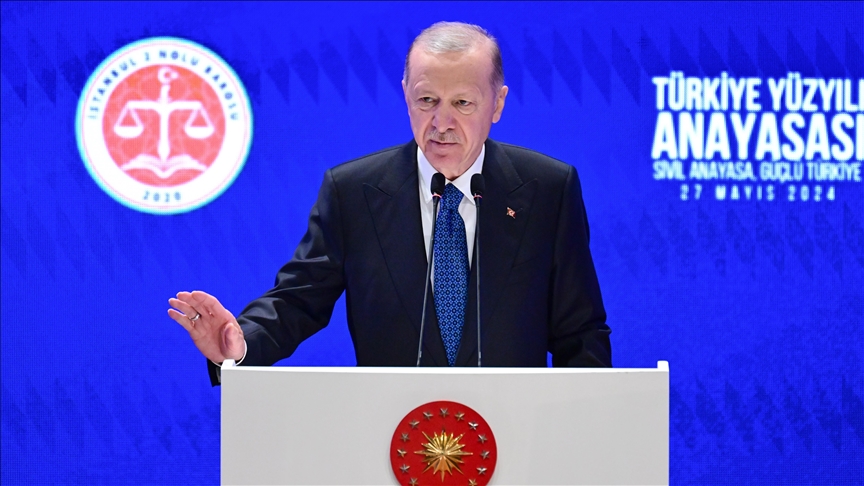Crisis not over, only deferred
Despite the efforts, the two countries appear to have managed only to defer the crisis.
"From now on, we have a very clear point. The Suleymaniyah crisis has importance not only for how the future of bilateral relations will evolve but at the same time for the identification of the ally the United States has selected itself in Turkey."
These words belong to a senior official with insight of the works of the Turkish-American Joint Investigation Commission established at the request of the U.S. with the task of probing the Suleymaniyah crisis and issuing a joint statement on it.
The same official, who has executive power, defended that while the differences of opinion between the "doves" and the "hawks" or the "new cons" in Washington reflected on Ankara, both two sides sought new allies and behave preferred these new "partners" to Turkish officials.
These remarks indicate the need to find an answer the question "How did Ankara perceive the Suleymaniyah crisis, how did it react and what were the issues it discussed?"
Ever since the crisis started, there have been many evaluations and speculations, some of which needed to be discarded while the others must be seriously considered in order to understand what Ankara really thinks of this development that seriously strained allied friendship and confidence between the two countries. This is all the more important if some clues wanted to be obtained for the steps Ankara might take in the period ahead.
First of all, Turkish officials believe that they faced in Suleymaniyah a "subtle, treacherous and dirty plot."
Secondly, they think that the United States have a "irresistible desire to see Turkey out of the region."
According to Turkish officials, in order to accomplish this the United States has arguments like "expressing the demands" of the Kurdish groups in the region or "using the Turkmens." Here, particularly, "using the Turkmens" expression needed to be elaborated on. For some time, civilian and non-civilian bureaucrats in Ankara have been considering for some time as "unfriendly" the presentation of Turkish-Turkmen relations by Americans like a "crime."
The Suleymaniyah crisis has deepened the rift between the "elected" and the "selected" powers of Ankara also.
Although everyone has been defending just the opposite, there was no "consensus" between the "elected" government and the "appointed" commanders in the evaluation of what has happened. This could be best seen in the remarks of some top military officers that "Nothing wrong was done… if any wrong was done, we would admit it and bear the consequences. We have never been involved in deceit."
Apart from that, the Suleymaniyah crisis has refreshed the memories of the Turkish military and reminiscent of the "unfriendly" arms embargo that was imposed on Turkey in the aftermath of the 1974 Turkish intervention on Cyprus.
"We shall never forget Suleymaniyah… We have never forgotten the embargo and we shall not forget this ambush…" a top source has said.
These remarks should not be taken as a determination at the Turkish Armed Forces to involve in a head-on confrontation with the U.S.. What’s said here is a determination, as was done in the wake of the embargo after which Turkey took some major steps to become self-sufficient for its defense, to avoid a confrontation but maintain a "distance" in deals with the U.S.
The attitude of the "elected" government on this issue, on the other hand, was rather "incomprehensible", not only to those who have been observing the developments from the outside but to the Americans also.
From the moment it heard of the Suleymaniyah developments, rather than staging the counter attitudes required, the government was involved in an effort to portray the whole affair as if it was in between the Americans and the Turkish military and should be resolved between the two.
The Turkish Armed Forces was placed in a situation very much like being left alone recently to counter the Greek claims regarding Aegean flights. Of course, there should not be any need to explain the irritation this stance of the Justice and Development Party government has created in the military.
The government, in a reflex of preserving economic balances and avoid itself from being left without external support, have been implementing policies disrupting all the domestic balances. What would be the eventual reflection of disrupted domestic balances on the Turkish-American relations is apparently not the concern of the Turkish government.
According to a senior official, irrespective how much the crisis and the following developments could be downplayed and tried to be ignored "there is merit in placing Turkish-American relations on low gear for some time." This is not an evaluation of only some observers, but a "strong wish" shared by many "top civilian and non-civilian bureaucrats."
These circles who defend Turkey ought to stay away from confrontations on its East and must progress towards the West, however, don’t have an answer to the question "How long Turkey can achieve that while the Middle East is being reshaped?"
Furthermore, there is no guarantee that the "tension-inflicted relations" would not really turn into "local" confrontations.
When the U.S.-PKK/KADEK relations were added to all these, the situation becomes even further complicated. The decision makers in Ankara have difficulty in understanding what their allies, with whom they had established a consensus on the policies to be pursued towards dealing with separatist PKK, have been really trying to do.
Furthermore, there have been frequent complaints behind closed doors that "Those who claim having sound reasons for the Suleymaniyah ambush and detentions, who have been raising eyebrows regarding Turkey’s relations with the Turkmens and making speculations on that issue were indeed in efforts to disguise their own relations (with the PKK)."
This situation could be taken as an indication that the relations between the two countries will plunge into a new and "silent" tension at the "appropriate time and place."



